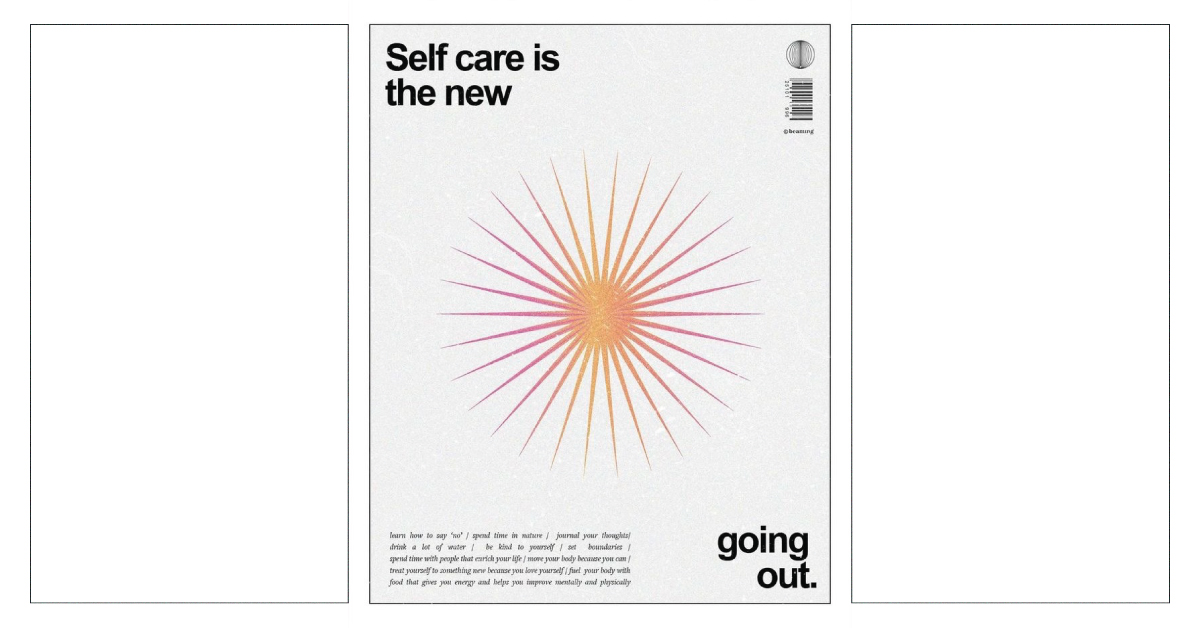How to Take Care of Your Mental Health This Winter
For many, winter is a cozy, introspective time to snuggle in warm sweaters and cuddle your loved ones or maybe your cat. While it can be wonderful, the winter season for others isn’t so pleasant. Winter can highlight loneliness (especially around the holidays), decrease energy, and cause seasonal affective disorder, triggering depression and anxiety.
This year, with the pandemic still in full force, dealing with a cold winter may feel daunting. For some, it may feel impossible. Many are dealing with the increased burden of trying to pay bills, keep or find jobs, and support sick loved ones, if not battling COVID-19 themselves. Necessary yet difficult lockdowns lead to isolation, and the inability to meet basic needs takes its toll on mental health. We need to address those who already struggle with mental health issues (like depression, anxiety, or eating disorders) and those at risk of developing them. If we’re going to get through this winter season, we need to support each other. More importantly, it’s essential that we take care of ourselves. Let this serve as a guide to inspire hope and self-care. (All activities and tips are pandemic-approved and budget-friendly.)
Journal
Journaling is an incredible way to process emotions and connect with yourself. If you’re struggling with feelings of despair, consider starting a gratitude journal. If you’re struggling with self-esteem, write down something you’re proud of before you go to bed every night. Our thoughts have power, and writing them down is one of the best ways to process and change them.
Express Yourself
We can feel especially cooped up these days, so it’s important that we find a way to release our feelings and energy when we can. Whether it’s journaling, painting, dancing, singing loudly in the shower, or talking to a friend, find a way to let things out and express yourself on a regular basis.
Get Outside
Spending time in nature has been shown to help those with depression. Fresh air and sunshine can boost our mood and help alleviate feelings of anxiety, as well as energize us. You can do this safely by social distancing in a park or going on a remote hiking trail. If it’s possible, go outside daily, even if it’s just to sit on your front steps or in your backyard.
Eat More Thank Your Feelings
This is definitely not the time to say no to chocolate and the things that make us feel good. As delicious as indulging is, though, it’s also really important to eat our vitamins and veggies. What we eat affects how we feel, both mentally and physically. In the winter, it’s especially important to feed our bodies nutrient-dense food (like vegetables, soups, or salads) and stay hydrated.
Connect with Friends
We might not be able to see many people in person right now, but we absolutely have to stay connected. I know most of us never want to get on a Zoom call again, so connecting may take some creativity. Maybe start a book club, play games virtually, or simply enjoy a good old-fashioned phone call. Socializing is essential for our mental health — now is not the time to isolate.
Practice Self-Care
Ideally, every day. Find something that nourishes and honors you, whether that’s repeating an affirmation every morning, starting a meditation practice, taking bubble baths, or practicing self-massage. Whatever it is, do it. Do it regularly enough that it starts to make a difference in your daily life.
Set Communication Boundaries
When we’re both working and socializing from home, it’s important to have boundaries. Clear, firm boundaries. Decide what times you are available to be reached and what times you aren’t, and then stick to it. Fight the urge to obsessively check your emails and Slack messages throughout the night. Don’t feel like you have to respond to every text or attend every virtual get-together. Do what you need to do for yourself and communicate that to others.
Find a Non-Screen Activity
It’s also important to regularly turn off your phone and computer entirely. I don’t know about you, but the more time I spend online, the more anxious I get and the harder it is to sleep. When our daily lives basically center around a screen, it can be helpful to find an activity offline. This can be reading, baking, playing board games, or learning something crafty and creative. Find something that allows you to truly unplug.
Move Your Body
Exercise boosts our endorphins, and with it our mood. Movement helps our circulation and energy levels, and it’s essential to our physical and emotional well-being. Make sure you’re taking time to move on a regular basis, especially when you’re sitting more than usual.
Rest More
It’s normal to feel tired all the time right now. It’s normal to not be okay. Value your rest more than ever. Sleep when you need to, sleep as much as you need to, and try not to beat yourself up for feeling lethargic or unmotivated.
Give Back
Last but not least, most of us begin to feel better when we tap into something bigger than ourselves. So many non-profit organizations are hurting right now or are strapped for resources. Find a cause you’re passionate about and connect with an organization you can volunteer your time to, virtually. Feeling a sense of purpose and connection can often be just the thing to help keep us going.
Professional Resources
Still struggling? For professional help, check out the list of resources below. There is no shame in receiving help when you need it. These resources are available remotely and most are free:
- The National Eating Disorders Association (NEDA): Helpline and resources for those struggling with eating disorders.
- The Loveland Foundation: Free or affordable therapy for Black women and girls.
- BetterHelp: Affordable, trustworthy, online therapy.
- The National Suicide Prevention Lifeline: Hotline for those struggling with suicidal thoughts or depression.
- The National Institute of Mental Health (NIMH): Official resources, crisis centers, and providers for various mental health issues.

-Alicia Briggs, Content Creator






